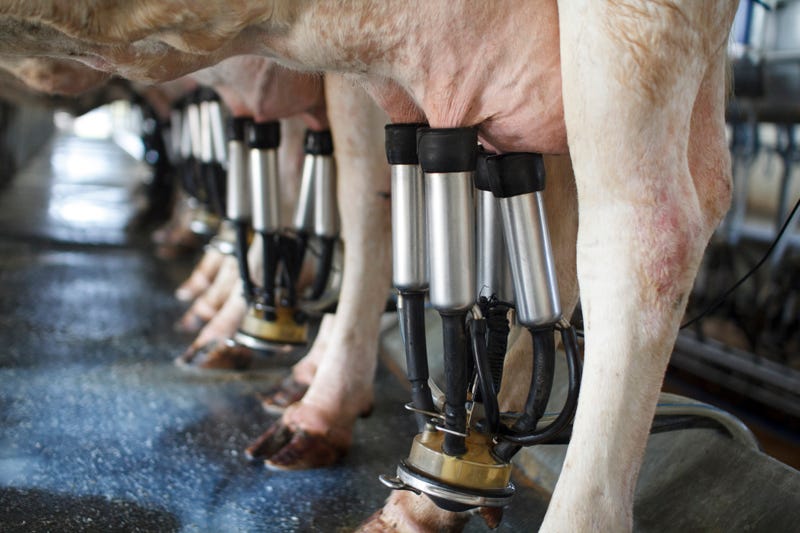
After three dairy workers were confirmed to have caught the bird flu from dairy cows, concern over the virus has become widespread.
Bird flu has now been found in dairy cattle in nine states, but Dr. Michael Osterholm, University of Minnesota director of the Center for Infectious Disease Research and Policy, says the risk to the public is still fairly low.
Osterholm says it is the milking of cattle that has caused the spread because of how the virus reacts in cow udders. However, processing the milk eliminates the threat. He says the workers were most likely exposed to the virus by getting contaminated milk on their hands, and then touching their eyes.
"The good news is is that pasteurization of the milk is fully protected against the virus being transferred to you," Osterholm explained.
He does warn anyone who is a raw milk drinker.
"It's really a dangerous practice. I've worked up far too many outbreaks of people severely ill from consuming raw milk and getting infected with any number of bacteria and viruses. So today we'd be concerned about people drinking this milk relative to the potential to become infected with this flu virus," says Osterholm.
Osterholm says the next step is to make sure farmers are informed about how to prevent cross contamination and how to safely dispose of milk from infected animals.
Speaking to WCCO's Chad Hartman, Osterholm says the main cause is cross contamination.
"It goes from one animal to another, then animals get moved from one farm to another. So we're seeing more and more evidence of spread throughout the dairy industry," Osterholm said.
Two cases of transfer to humans have been reported in Michigan. There's been one more reported case in Texas according to the CDC. The latest case is a dairy farm worker with exposure to infected cows, making this another instance of probable cow-to-person spread.
"We have worried for many, many years of influenza viruses of bird origin which do not otherwise infect humans," explains Dr. Osterholm who says they're carefully tracking the spread in cows.
Earlier this week, the US Department of Agriculture Animal and Plant Health Inspection Service reported two more avian flu outbreaks in Minnesota, both involving commercial turkey farms in Stearns County. One facility houses 32,400 turkeys, and the other farm has 43,300 birds.
Three other outbreaks were recently reported at turkey farms in the same county.
